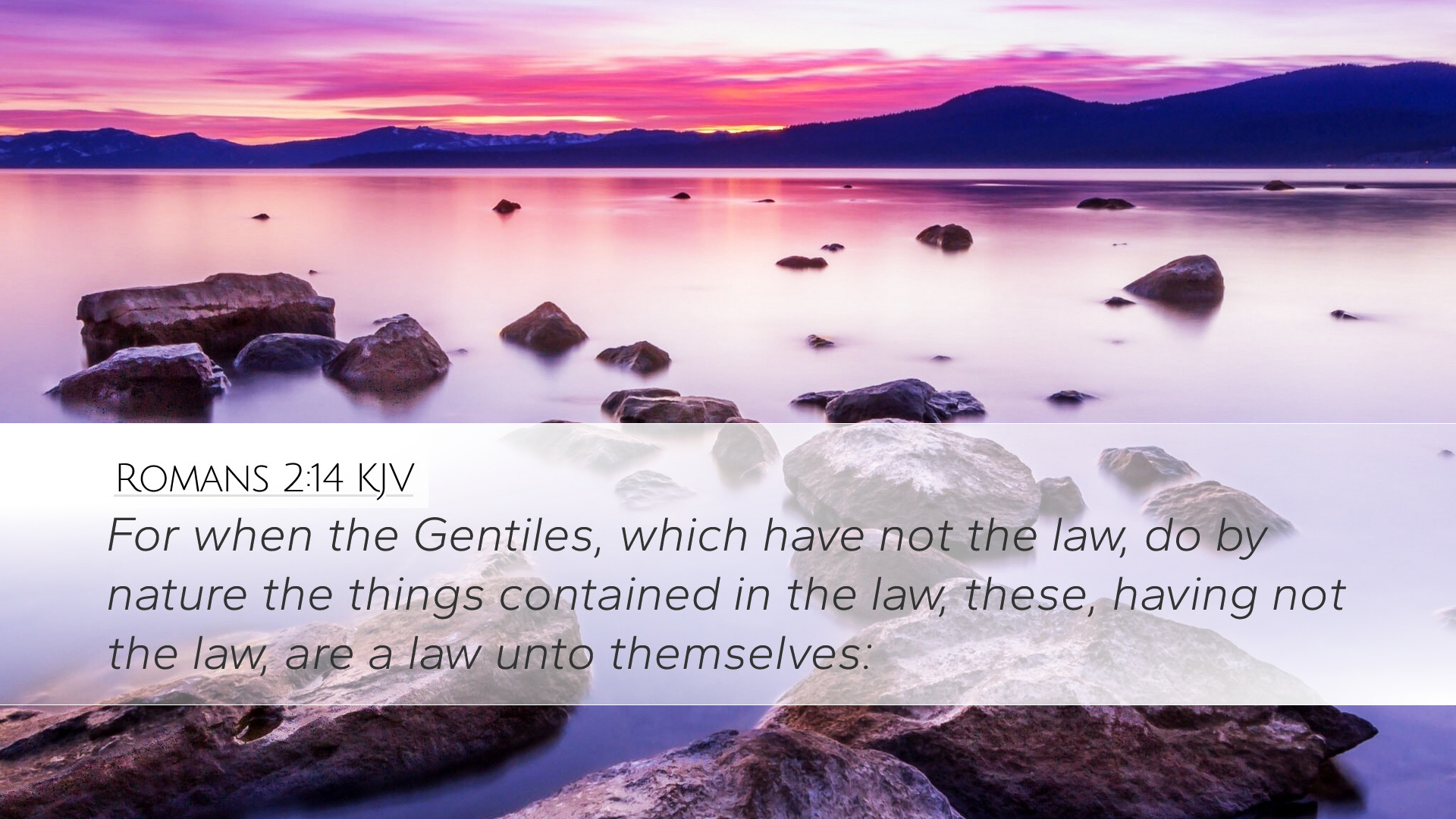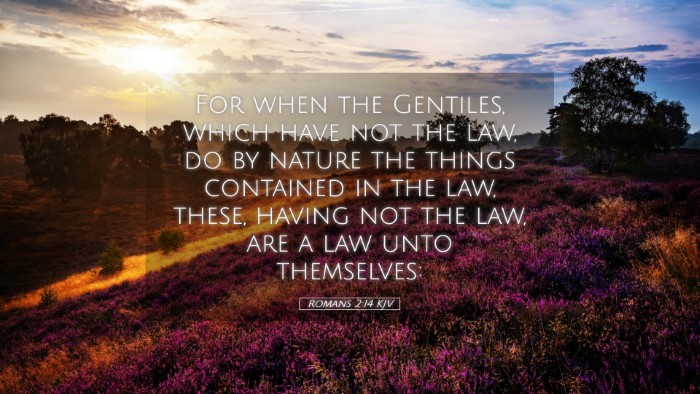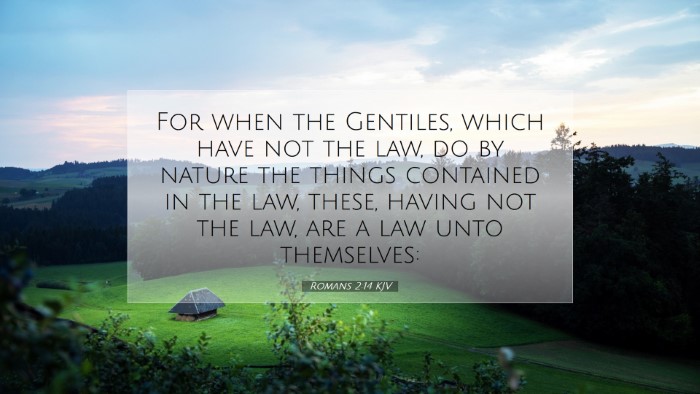Commentary on Romans 2:14
Verse: "For when the Gentiles, which have not the law, do by nature the things contained in the law, these, having not the law, are a law unto themselves."
Introduction
The apostle Paul, in his epistle to the Romans, presents a profound discourse on the nature of sin, law, and righteousness. Romans 2:14 encapsulates a pivotal element of Paul's argument regarding accountability before God, particularly in relation to the Gentiles. This commentary seeks to explore this verse by drawing insights from Matthew Henry, Albert Barnes, and Adam Clarke, providing a composite understanding for students, pastors, and theologians.
Contextual Background
In the broader context of Romans, Paul is addressing both Jews and Gentiles, highlighting the universal nature of sin. He begins to outline how the Gentiles, who were not given the Mosaic Law, can still exhibit a moral compass that reflects the divine law. This sets the stage for understanding God's justice and righteousness beyond the boundaries of the Jewish law.
Exegesis of Romans 2:14
Paul's assertion that Gentiles "by nature do the things contained in the law" brings forth several critical theological implications:
- The Concept of Natural Law: The notion of 'natural law' suggests that God has ingrained a moral understanding within every human being, regardless of their exposure to Scripture. This innate sense of right and wrong functions as an internal guide.
- Moral Accountability: If the Gentiles act according to this inner law, they demonstrate that moral behavior exists outside the written law, indicating that God's standards of righteousness are universal.
- Evidence of God's Work: The actions of Gentiles in moral situations serve as evidence of God's law written upon their hearts, as Paul later emphasizes in verse 15.
Insights from Commentators
Matthew Henry
Henry notes that this verse illustrates the impartial nature of God's judgment. He emphasizes the idea that those without the written law are still capable of moral conduct because the law of God is, in a sense, natural to human beings. This establishes that knowledge of the law is not a prerequisite for moral action. Henry further argues that God’s justice will take into account the light that each individual has, suggesting that those who act righteously are under a different kind of scrutiny than those who have the law and do not follow it.
Albert Barnes
Barnes elaborates on the concept of the Gentiles being "a law unto themselves." He explains that while they may not have the Mosaic Law, their actions reflect the moral obligations that the law represents. Barnes highlights the significance of conscience in this process, suggesting that it acts as a witness either affirming or condemning their actions. Therefore, the inner moral compass derived from spiritual and ethical truth plays a role in their ultimate judgment by God.
Adam Clarke
Clarke provides an extensive examination of the phrase "by nature." He associates it with the intuitive moral instincts inherent in humanity. He asserts that the Gentiles could perform acts that align with God's commands because of their intrinsic understanding of morality. Clarke's commentary underlines the consistency of God's character, suggesting that God does not judge based on human standards, but by the truth of each individual’s circumstances and their responses to the truth they possess.
Theological Implications
This verse challenges traditional views of the necessity of the Mosaic Law for righteousness. It posits the idea that God's moral requirements transcend specific religious instruction and resonates within the heart of every individual. Consequently, the implications of Romans 2:14 are far-reaching:
- Universal Accountability: Every person, not just those under Mosaic Law, is accountable to God based on their understanding of right and wrong.
- Role of Conscience: The conscience plays a crucial role in moral decision-making and reflects God's imprint on humanity.
- God's Impartiality: God's judgment does not favor Jews over Gentiles but considers the heart and actions of every individual.
Conclusion
In Romans 2:14, Paul encapsulates a significant theological truth about God's universal law and the innate morality found within all humanity. Insights from Matthew Henry, Albert Barnes, and Adam Clarke collectively underscore that righteousness is not limited to adherence to the written law alone, but is exhibited in moral actions inspired by the law written on the hearts of individuals. As such, this verse serves as a reminder of the grace and justice of God that permeates throughout humanity, encouraging both believers and non-believers to recognize and respond to the moral truths inherent in their existence.


